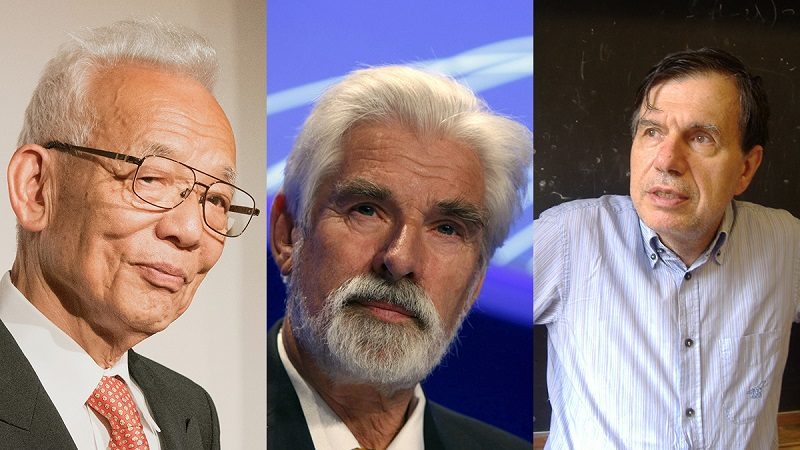Climate Experts Awarded Nobel Prize in Physics
Environment/Discovery Series: Syukuro Manabe, Klaus Hasselmann and Giorgio Parisi share this year’s Nobel Prize in Physics for their studies of chaotic and apparently random phenomena for climate and other complex phenomena. Wins 10 million Swedish kronor in prize reward.
Environment/Discovery Series: Syukuro Manabe, Klaus Hasselmann and Giorgio Parisi share this year’s Nobel Prize in Physics for their studies of chaotic and apparently random phenomena for climate and other complex phenomena. Wins 10 million Swedish kronor in prize reward.

Image: Physics World
The Royal Swedish Academy of Sciences, founded in 1739, in a recent release, announced the Nobel Prize 2021 winners in Physics.
A registered trademark of the Nobel Foundation, Nobel Prize® recognises three Laureates, whose efforts in creating new methods for describing and predicting complex systems that are characterised by randomness and disorder and are difficult to understand.
Syukuro Manabe is Senior Meteorologist at Princeton University, USA. He has made a life-long dedication to Earth’s climate long before completing a Ph.D from University of Tokyo, Japan in 1957. Originally from Shingu, the same town as renown novelist Kenji Nakagami.
Manabe has demonstrated how increased levels of carbon dioxide in the atmosphere lead is lead to increased temperatures at the surface of the Earth.
In the 1960s, he led the development of physical models of the Earth’s climate and was the first person to explore the interaction between radiation balance and the vertical transport of air masses.
The Nobel Prize recognized Manabe’s work that has laid the foundation for the development of current climate models. Or more accurate termed “for ground-breaking contributions to our understanding of complex physical systems”.
The second winner is a German professor from the Max Planck Institute for Meteorology, Hamburg. Klaus Hasselmann shares one half of the Nobel Prize with Syukuro Manabe, as the Academy of Sciences termed it “for the physical modelling of Earth’s climate, quantifying variability and reliably predicting global warming”.
Klaus Hasselmann has convinced the experts of the question on why climate models can be reliable despite weather being changeable and chaotic. To prove, methodically, that the increased temperature in the atmosphere is caused by human emissions of carbon dioxide, he had created a series of methods that link weather and climate. From identifying special signals, fingerprints from both natural phenomena and human activities imprint in the climate. A model that eventually earned him the recognition.
The other half, and the final Nobel Prize winner in the Physics section, goes to Giorgio Parisi. Around 1980, just a decade after receiving a Ph.D from Sapienza University of Rome, Italy, Parisi discovered hidden patterns in disordered complex materials.
His recognition by the Academy today “for the discovery of the interplay of disorder and fluctuations in physical systems from atomic to planetary scales” are among the most important contributions that make it possible to understand and describe many different and apparently entirely random materials and phenomena. His research has extended beyond physics into areas including mathematics, biology, neuroscience and machine learning.
“The discoveries being recognised this year demonstrate that our knowledge about the climate rests on a solid scientific foundation, based on a rigorous analysis of observations. This year’s Laureates have all contributed to us gaining deeper insight into the properties and evolution of complex physical systems,” says Thors Hans Hansson, chair of the Nobel Committee for Physics.
In short, Syukuro Manabe and Klaus Hasselmann have practically laid the foundation of our knowledge of the Earth’s climate and how humanity influences it. While Giorgio Parisi is rewarded for his revolutionary contributions to the theory of disordered materials and random processes.
And if all of this is not significant enough, there is the grand prize of 10 million Swedish kronor. With one half jointly to Syukuro Manabe and Klaus Hasselmann and the other half to Giorgio Parisi.
Source: Nobelprize.org




